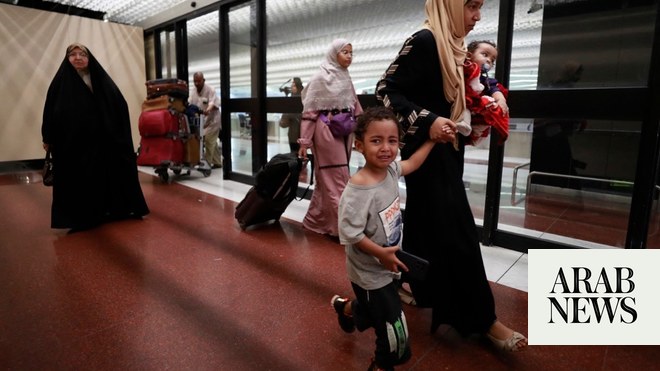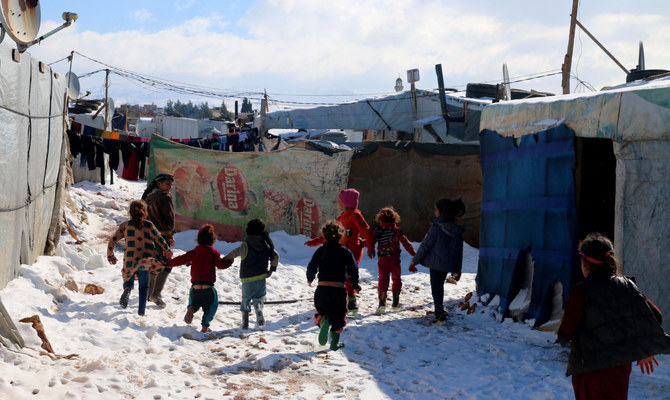
Despite the Beirut Port explosion, soaring hyperinflation, food insecurity and crippling fuel shortages, the country’s leaders continue to prevaricate
Najib Mikati is the latest to take on the mantle, promising the swift formation of a government when he was appointed PM-designate on Jul. 26
DUBAI: More than 12 months since Lebanon’s cabinet resigned and with the country teetering on the brink of collapse, politicians look unlikely to form a much-needed government any time soon, sources warn.
Despite one of the world’s largest-ever non-nuclear explosions killing more than 200 people, soaring hyperinflation, food insecurity and crippling fuel shortages, leaders have continued to dig their heels in while two designated prime ministers have come and gone.
Najib Mikati, a billionaire businessman and former PM, is the latest to take on the mantle, promising a swift formation of a government within a month when he was appointed on Jul. 26.
“I gave my proposals, President Michel Aoun approved most of them and he made some remarks which are acceptable. God willing, we will be able to form a government soon,” Mikati said two days later.
A month has passed, and Mikati is facing the same fate as his two predecessors — Mustapha Adib and Saad Hariri — who both failed to come to terms with Aoun.
Mikati is set to meet with the president on Thursday afternoon, with sources noting that both men are far from coming to terms on a government.
“I believe Mikati will be forced to step down at some point like the others,” Mustapha Allouche, the Future Movement’s vice president, the party formed by Hariri’s late father, told Arab News.
According to Lebanon’s sectarian power-sharing model, the president, a Maronite Christian, and the prime minister-designate, a Sunni Muslim, must both agree on a cabinet lineup in unison that is split equally between Christians and Muslims.
“What is happening now is merely a continuation of what has transpired over the past 12 months, with each political bloc maneuvering based on its own calculations,” Rosana Bou Monsef, a political analyst and veteran columnist for Lebanese daily An-Nahar, told Arab News.
At the core of the issue, she said, is the president’s Free Patriotic Movement trying to secure favorable terms in the upcoming government, which could stay in power until after Aoun leaves office next year.
Lebanon is set to hold parliamentary elections in May, which given the turbulent political landscape and security situation, could be delayed. This would pave the way for the upcoming government to stay in place, take key decisions moving forward and exert pressure on political opponents.
“It is becoming increasingly clear that the problem doesn’t lie with who will head the government but with the president’s group’s unwillingness to form a government except on its terms,” Bou Monsef said.
After nine months of grueling negotiations and a number of public spats with the president, Hariri stepped down in mid-July, saying “God help Lebanon” as he left the presidential palace.
Hariri had accused the president of blocking the formation of a cabinet in which the FPM, the party he founded and currently headed by his son-in-law MP Gebran Bassil, lacks veto power.
Eddy Maalouf, an FPM parliamentarian, denied the accusations, telling Arab News that the deadlock stems from Hariri and Mikati’s attempts to encroach on the constitution and name several Christian ministers.
“They must afford the president’s bloc the same rights afforded to the other parties,” he said.
Further complicating matters is Hezbollah Secretary-General Hassan Nasrallah’s announcement on Aug. 19 that the party had secured fuel shipments from Iran.
Amid typical governmental absenteeism, the Iranian-backed Hezbollah has seemingly taken matters into its own hands, vowing that fuel tankers would set sail to Lebanon from the sanction-ridden country.
If Hezbollah follows through with its promise and the tankers actually do dock in Lebanon, it would open up the Lebanese state to the possibility of sanctions from the US, which has vowed to punish anyone that deals with Tehran.
“The Iranian fuel has put Mikati in an extremely tough position as his government program was based on cooperating with the international community and Gulf countries to secure financial assistance for Lebanon,” Bou Monsef told Arab News.
This was echoed by Maalouf, who maintained that Mikati is “hesitating in moving forward with the formation of the government in light of this development.”
The possibility of Mikati stepping down is now gaining traction, Bou Monsef noted, “despite the international community urging him to move forward with negotiations.”
Mikati’s resignation would have a ripple effect across Lebanon’s political landscape, Allouche said.
“If Mikati steps down, we’ll have to reconsider our calculations,” Allouche said when responding to a question on whether Hariri’s Future Movement bloc would resign from parliament.
Sami Fatfat, a Future Movement MP, held out hope that a government would be formed but assured his party is “looking into different options, including mass resignations” if Mikati steps down.
“The next couple of days will be decisive,” he noted, as Lebanon braces for the potential arrival of the first shipment of Iranian fuel coupled with the end of Mikati’s one-month deadline.












